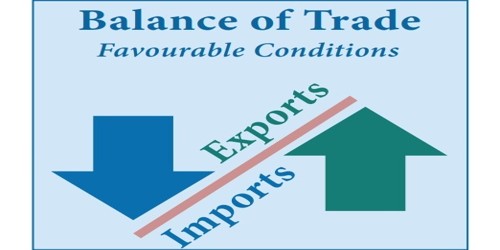
Planning for retirement is a critical step towards ensuring financial security in our golden years. Retirement planning involves making informed decisions about investment strategies, savings tips, and income planning. One crucial aspect of retirement planning is healthcare costs and coverage, which can significantly impact our financial security and quality of life in retirement.
In this guide, we will explore the importance of healthcare planning in retirement, providing valuable strategies and advice to manage healthcare costs and maximize coverage. We will discuss different retirement planning essentials, including retirement investment strategies, saving tips, and advice to help you lay a solid foundation for your financial security and quality of life in retirement. We will assess healthcare needs in retirement, explore various healthcare options available for retirees, and delve into different Medicare parts, eligibility requirements, enrollment periods, and strategies to maximize your Medicare benefits.
Our goal is to help you navigate the complexities of healthcare in retirement, enabling you to make informed decisions about your healthcare coverage and expenses, and achieve a worry-free retirement.
Key Takeaways
- Healthcare costs and coverage are essential factors to consider in retirement planning.
- Retirement planning involves making informed decisions about investment strategies, savings tips, and income planning.
- Understanding healthcare needs in retirement can help you estimate healthcare costs and determine the necessary coverage for different stages of retirement.
- Exploring various healthcare options and Medicare benefits is crucial in maximizing healthcare coverage and minimizing out-of-pocket expenses.
- Planning for healthcare expenses not covered by Medicare, managing prescription drug costs, and incorporating Health Savings Accounts (HSAs) into retirement planning can help optimize healthcare expenses in retirement.
Understanding the Importance of Retirement Planning
Retirement planning is not just a financial decision but a critical life decision. It lays the foundation for a comfortable retirement and ensures you are financially secure during your golden years. Retirement planning encompasses different aspects, including investment strategies, saving tips, and advice to help you achieve your retirement goals.
Planning for retirement may seem daunting, but it doesn't have to be. With the right tools and resources, you can develop a retirement plan that fits your needs and budget. Here are some essential retirement planning tips to help you get started:
- Start Early: The earlier you start planning, the better off you will be. Experts suggest starting retirement planning in your 20s or early 30s to take advantage of compounding interest and the power of time.
- Set Realistic Goals: Set realistic goals for your retirement, including the lifestyle you want to maintain, travel plans, and healthcare needs.
- Maximize Savings: Maximize your savings by contributing the maximum amount to your retirement accounts, such as 401(k)s, IRAs, and other retirement plans.
- Diversify Investments: Diversify your investment portfolio to mitigate risk and achieve long-term growth.
- Consider Inflation: Factor in inflation when planning for retirement to ensure your savings maintain their value over time.
- Work with Retirement Planning Services: Consider working with retirement planning services to create a comprehensive retirement plan tailored to your specific needs and goals.
Retirement planning requires careful consideration and analysis of your financial situation. That's why using a retirement plan calculator or working with retirement planning services can help you make informed decisions and maximize your retirement savings and investments.
By following these retirement planning tips and strategies, you can lay the groundwork for a financially secure and fulfilling retirement. In the next section, we will discuss how healthcare planning plays a crucial role in retirement planning and how you can navigate healthcare costs and coverage in retirement.
Assessing Healthcare Needs in Retirement

Retirement planning involves anticipating the various expenses that come with aging, including healthcare costs. Evaluating your healthcare needs is an essential step in retirement planning. You need to determine the necessary coverage for different stages of retirement and consider factors that may impact your healthcare costs.
One factor to consider is your age and overall health. Generally, healthcare costs increase as you get older and may vary depending on your health status. Some retirees may require more medical attention, resulting in higher healthcare expenses.
You should also consider your family history and any preexisting medical conditions. These factors can have an impact on the types of healthcare services you require and the associated costs.
Another critical factor to consider is the location where you plan to retire. Healthcare costs and availability can vary significantly depending on where you reside. Areas with higher healthcare costs may require more extensive planning to ensure adequate coverage and affordability.
It is essential to have a comprehensive understanding of your healthcare needs to make informed decisions on the appropriate coverage.
Assessing Healthcare Needs Checklist
Below is a checklist to help evaluate your healthcare needs and plan for potential expenses:
- Review your family medical history and consider any preexisting medical conditions you may have
- Evaluate your current health status and assess any potential future healthcare needs
- Research healthcare costs and coverage options in your desired retirement location
- Consider the out-of-pocket expenses associated with each healthcare option, including deductibles, co-payments, and premiums
- Estimate potential long-term care costs and evaluate the need for long-term care insurance
By assessing your healthcare needs and considering these different factors, you can create a plan that effectively manages healthcare costs and provides adequate coverage throughout retirement.
Exploring Healthcare Options for Retirees
Retirees have several healthcare options to choose from, but navigating through them can be overwhelming and confusing. Understanding the various healthcare plans available can help retirees make informed decisions when choosing the most suitable healthcare coverage for their needs. Here we will explore the different healthcare options available for retirees, including Medicare, supplemental insurance, long-term care insurance, and employer-sponsored plans.
Medicare
Medicare is a federal health insurance program for people who are 65 or older, as well as for those with certain disabilities and people with end-stage renal disease. Medicare consists of four parts:
| Medicare Part A | covers hospital care, nursing home care, hospice care, and home health care services. |
|---|---|
| Medicare Part B | covers doctor visits, outpatient care, durable medical equipment, and medical services. |
| Medicare Part C | a Medicare Advantage plan offered by private insurance companies that combines Part A and B benefits, often including additional benefits such as dental and vision coverage. |
| Medicare Part D | covers prescription drugs. |
It is essential to understand Medicare's enrollment periods, eligibility requirements, and coverage limitations. Medicare does not cover all healthcare expenses, and some gaps can be filled with supplemental insurance.
Supplemental Insurance
Supplemental insurance, also known as Medigap, is a private insurance plan that covers some of the gaps left by Original Medicare. Medigap plans pay for the out-of-pocket costs associated with Medicare, such as co-payments, coinsurance, and deductibles, as well as additional benefits such as emergency medical care during foreign travel. It is essential to weigh the benefits and costs when choosing a Medigap plan.
Long-Term Care Insurance
Long-term care insurance provides coverage for extended care services such as nursing home care, assisted living facilities, and home health services. This insurance can be costly, and it is essential to evaluate the need for long-term care insurance based on individual health and family history.
Employer-Sponsored Plans
Retirees who worked for a company that offers retiree health coverage may be eligible for an employer-sponsored plan. These plans may provide benefits similar to Medicare, such as hospital and medical coverage, prescription drug coverage, and other services. It is critical to understand the benefits, limitations, and costs associated with employer-sponsored plans.
Exploring the available healthcare options for retirees can be overwhelming, but taking the time to understand the benefits, costs, and limitations of each option can help retirees make informed decisions when choosing healthcare coverage that best suits their needs.
Maximizing Medicare Benefits

Medicare is a federal health insurance program for retirees and individuals with certain disabilities. While Medicare provides basic coverage, it may not cover all of your healthcare needs in retirement. Understanding the different parts of Medicare can help you maximize your benefits and minimize healthcare costs.
Parts of Medicare
Medicare has four parts:
| Part | Description |
|---|---|
| Part A (Hospital Insurance) | Covers inpatient hospital care, skilled nursing facility care, hospice care, and home health care. |
| Part B (Medical Insurance) | Covers doctor visits, outpatient care, home health care, and some preventive services. |
| Part C (Medicare Advantage Plans) | Combines Parts A and B coverage and may offer additional benefits such as vision and dental care. |
| Part D (Prescription Drug Coverage) | Covers prescription drugs and may help lower your medication costs. |
It's important to understand which parts of Medicare you are eligible for and which ones best suit your healthcare needs and budget. Eligibility for Medicare typically begins at age 65 or earlier if you have certain disabilities or illnesses.
Enrollment and Costs
Enrolling in Medicare can be complex, and the costs vary depending on the parts you choose and your income. It's essential to enroll during your initial enrollment period to avoid late enrollment penalties.
There are also premiums, deductibles, and coinsurance associated with each part of Medicare. To ensure you can budget for these expenses, it's essential to understand the potential costs of Medicare and any additional healthcare expenses you may have.
Maximizing Your Benefits
To maximize your Medicare benefits and minimize costs, consider the following strategies:
- Compare Medicare Advantage plans to original Medicare to see which provides the best coverage and value for your healthcare needs.
- Enroll in a Medicare Part D plan to lower your prescription drug costs.
- Review your healthcare needs annually to determine if your current Medicare coverage is still suitable or if you need to make changes.
- Consider supplemental Medigap plans to help cover out-of-pocket costs associated with original Medicare.
By understanding the different parts of Medicare and your eligibility and costs, you can make informed decisions about your healthcare coverage in retirement.
Supplementing Medicare with Medigap Plans
Medigap plans, also known as Medicare Supplement Insurance, can be an excellent option for retirees looking to fill the gaps in Medicare coverage. These plans are sold by private insurance companies and can cover expenses such as coinsurance, deductibles, and copayments that Medicare doesn't cover.
It's essential to understand that Medigap plans only work alongside Original Medicare, not Medicare Advantage plans. You cannot have both a Medigap plan and a Medicare Advantage plan at the same time.
There are ten different Medigap plans, each labeled with a letter from A – N, with varying levels of coverage. Every Medigap plan with the same letter must provide the same benefits, regardless of the insurance company offering it. However, the premiums for each plan can differ from company to company.
Eligibility for Medigap Plans
To enroll in a Medigap plan, you must already have Medicare Part A and Part B. You also need to ensure that the Medigap plan you choose is available in your state and suitable for your needs. Medigap insurance companies can deny coverage if you have end-stage renal disease, and you may not be eligible if you have a Medicare Advantage plan.
Considerations When Choosing a Medigap Plan
When choosing a Medigap plan, several factors need to be taken into consideration. These include:
- The cost of the plan
- The benefits provided
- Your budget
- Your healthcare needs
- Your travel plans
It's essential to research and compare the different Medigap plans and premiums available to find one that best fits your needs and budget. You can use Medicare's official website or consult an insurance agent or broker to help you find the right plan.
A Medigap plan can provide additional financial security and peace of mind in retirement. By supplementing your Medicare coverage, you can reduce your out-of-pocket costs for healthcare expenses and ensure that you have comprehensive coverage for your medical needs.
Long-Term Care Planning in Retirement

Long-term care is an essential aspect of healthcare planning in retirement. As we age, the likelihood of needing long-term care increases, and the cost can be a significant financial burden. It is crucial to consider long-term care insurance and alternative care options to ensure you are prepared for potential expenses.
Evaluating the Need for Long-Term Care
When assessing your retirement healthcare needs, it is essential to evaluate your potential need for long-term care. Factors such as age, medical history, and family health history can influence the likelihood of requiring extended care. It is essential to consider the costs of home health aides, nursing homes, and assisted living facilities when estimating long-term care expenses.
Long-Term Care Insurance
Long-term care insurance is one option to cover the costs of extended healthcare needs in retirement. These policies can cover expenses such as nursing home care, in-home care, and assisted living. However, it's important to note that premiums for these policies can be costly, and benefits may be limited by factors such as age and pre-existing conditions.
| Pros of Long-Term Care Insurance | Cons of Long-Term Care Insurance |
|---|---|
| Can be beneficial for those with a family history of long-term health issues. | Can be expensive. |
| Can provide financial security if care is needed for an extended period. | May not cover all expenses, and benefits may be limited. |
| Offers flexibility in choosing the type of care needed. | May not be available to those with pre-existing conditions. |
Alternative Care Options
Alternative care options, such as home care and adult daycare, can be a less expensive alternative to long-term care insurance. These options allow individuals to receive care in their home or a community setting while maintaining some independence. However, it's important to research these options thoroughly and consider factors such as quality of care and availability in your area.
Planning Ahead for Long-Term Care Costs
Planning for long-term care costs should be a crucial part of your retirement planning strategy. Consider the potential need for long-term care, research insurance options, and alternative care options, and budget accordingly. Consulting with a retirement planning service can also provide valuable insights and guidance on navigating the costs of long-term care.
Managing Prescription Drug Costs
Prescription drugs can be a significant portion of healthcare costs in retirement, especially for those with chronic conditions. Fortunately, there are several strategies to help manage these expenses:
1. Consider Generic Alternatives
Generic drugs can be significantly cheaper than brand-name medications, often costing up to 80% less. Always ask your doctor if there is a generic alternative to your prescribed medication.
2. Utilize Prescription Assistance Programs
Many pharmaceutical companies offer prescription assistance programs to help individuals with low incomes or those without insurance coverage afford their medications. These programs can provide significant discounts or even free medications.
3. Optimize Your Medicare Part D Coverage
Medicare Part D provides coverage for prescription drugs. Reviewing your plan annually and selecting a plan that best suits your medication needs can help minimize out-of-pocket expenses. If you reach the coverage gap, also known as the "donut hole," talk to your healthcare provider or consider using a discount drug card to save on costs.
4. Compare Pharmacy Prices
Drug prices can differ significantly between pharmacies. Consider shopping around or using online tools to compare prices and find the best deals.
By utilizing these strategies, you can manage your prescription drug costs and avoid unnecessary out-of-pocket expenses, ensuring that your healthcare coverage lasts throughout retirement.
Planning for Health Expenses Not Covered by Medicare
While Medicare provides comprehensive coverage, it doesn't cover all healthcare expenses, leaving retirees vulnerable to potentially significant costs. To ensure you're prepared for all possible health expenses in retirement, it's crucial to consider additional expenses not covered by Medicare when planning for retirement healthcare costs and coverage.
Common Health Services and Expenses Not Covered by Medicare
Some of the most common health services and expenses not covered by Medicare include:
- Dental Care: Routine dental exams, cleanings, fillings and dentures are not covered by Medicare, unless they are medically necessary due to an injury or illness.
- Vision Care: Routine eye exams, eyeglasses, and contact lenses are not covered by Medicare, except for those with certain eye diseases.
- Hearing Aids: Medicare does not cover hearing aids or routine hearing exams.
- Long-Term Care: Medicare does not cover most long-term care expenses, such as nursing home care, assisted living, and home health care services.
- Alternative Medicine: Acupuncture, chiropractic care, and other alternative medicine treatments are not covered by Medicare.
Planning for these additional expenses can help ensure you have adequate coverage and budgeting in place to avoid unexpected costs. Consider researching supplemental insurance, such as dental, vision, or hearing insurance plans, or exploring alternative long-term care options, such as long-term care insurance, to help mitigate these expenses.
By taking the time to consider and plan for health expenses not covered by Medicare, you can feel confident in your retirement healthcare coverage and avoid unexpected financial burdens.
Incorporating Health Savings Accounts (HSAs) into Retirement Planning
Health Savings Accounts (HSAs) are a valuable tool for retirees to manage healthcare costs. An HSA is a tax-advantaged savings account that allows you to contribute pre-tax income and use the funds for qualified healthcare expenses, including deductibles, copayments, and prescription drugs.
To be eligible for an HSA, you must be enrolled in a high-deductible health plan (HDHP) and not be covered by other health insurance. The contribution limits for 2021 are $3,600 for individuals and $7,200 for families, with an additional $1,000 catch-up contribution for those aged 55 or older.
One benefit of HSAs is their portability. You can keep your HSA account and use the funds for qualified healthcare expenses even after you retire. This makes HSAs a great tool for retirement planning, as you can contribute to the account during your working years and use the funds to cover healthcare costs in retirement.
Maximizing HSA Benefits
To make the most of your HSA, it's important to plan strategically. Here are some tips for maximizing HSA benefits in retirement:
- Contribute as much as possible: The more you contribute to your HSA, the more funds you will have available for healthcare expenses in retirement.
- Invest your HSA funds: Many HSA providers offer investment options, allowing you to grow your savings tax-free.
- Use HSA funds for Medicare premiums: Once you turn 65, you can use HSA funds to pay for Medicare Part B, Part D, and Medicare Advantage premiums.
Comparing HSAs to Other Retirement Savings Accounts
HSAs offer unique benefits that set them apart from other retirement savings accounts such as 401(k)s and IRAs. Here are some key differences:
| Account Type | Contribution Limits | Tax Treatment | Withdrawals | Use in Retirement |
|---|---|---|---|---|
| HSA | $3,600 (individual) $7,200 (family) + $1,000 catch-up (age 55+) |
Contributions are tax-deductible; earnings grow tax-free; withdrawals for qualified medical expenses are tax-free. | Withdrawals for non-medical expenses before age 65 are subject to a 20% penalty; after age 65, withdrawals for non-medical expenses are subject to income tax. | Qualified medical expenses can be withdrawn tax-free at any time; after age 65, HSA funds can be withdrawn for any purpose and are subject to income tax but no penalty. |
| 401(k) | $19,500 (under 50) $26,000 (age 50+) |
Contributions are tax-deductible; earnings grow tax-free; withdrawals are subject to income tax. | Withdrawals before age 59 1/2 are subject to a 10% penalty and income tax. | Can be used for any purpose after age 59 1/2; withdrawals are subject to income tax. |
| IRA | $6,000 (under 50) $7,000 (age 50+) |
Contributions may be tax-deductible depending on income; earnings grow tax-free; withdrawals are subject to income tax. | Withdrawals before age 59 1/2 are subject to a 10% penalty and income tax. | Can be used for any purpose after age 59 1/2; withdrawals are subject to income tax. |
When comparing these accounts, it's clear that HSAs offer unique advantages for managing healthcare costs in retirement. While 401(k)s and IRAs are great tools for retirement savings, they don't provide the same tax benefits for healthcare expenses that HSAs do.
Working with Retirement Planning Services
Retirement planning can be overwhelming, especially considering the complexities of healthcare costs and coverage. Seeking advice from retirement planning services can provide valuable insights, expertise, and peace of mind.
When choosing a retirement planning service, it is essential to consider their experience, qualifications, and credentials. Look for professionals with expertise in retirement income planning, investment strategies, and healthcare planning. They should also have experience working with clients in similar financial situations and retirement goals.
Retirement planning services can offer a wide range of services, including individual consultations, retirement planning guides, investment management, and estate planning. Consider the services you need most and choose a provider that offers those services.
In addition to their services, consider their fee structure. Some providers may charge a flat fee, while others charge a percentage of your assets or income. It is essential to understand the fees and ensure they are transparent, fair, and aligned with your financial goals.
Retirement planning services can help you navigate the complexities of retirement planning, providing valuable guidance and expertise. By choosing the right service for your needs, you can lay a solid foundation for a comfortable retirement.
Conclusion
Retirement planning is a critical aspect of ensuring a financially secure future. While healthcare costs and coverage may seem daunting, with the right strategies and tips, you can navigate the complexities and prepare for a worry-free retirement.
As discussed in this guide, understanding the importance of retirement planning, assessing your healthcare needs, exploring healthcare options, and maximizing Medicare benefits can go a long way in managing healthcare costs. Supplementing Medicare with Medigap plans, planning for long-term care, managing prescription drug costs, and budgeting for additional expenses are also vital considerations in healthcare planning.
Lastly, seeking guidance from retirement planning services can provide invaluable insights and expertise in developing a comprehensive retirement plan. By incorporating healthcare planning as a crucial component, you can enjoy peace of mind in your golden years and make the most of retirement.
Remember, it's never too early or too late to start planning for retirement. Start taking steps today, and secure your financial future.
FAQ
What is retirement planning?
Retirement planning is the process of determining your financial goals and creating a strategy to achieve them during your retirement years. It involves saving and investing money to ensure a comfortable and secure retirement.
Why is retirement planning important?
Retirement planning is important because it allows you to take control of your financial future. By planning ahead, you can ensure that you have enough savings and investments to cover your living expenses and healthcare costs during retirement.
How can I save for retirement?
There are several ways to save for retirement, including contributing to retirement accounts such as a 401(k) or IRA, investing in stocks and bonds, and building a diversified portfolio. It's important to start saving as early as possible and regularly contribute to your retirement savings.
What are the best retirement plans?
The best retirement plans depend on your individual financial situation and goals. Common retirement plans include 401(k)s, IRAs, Roth IRAs, and pension plans. It's important to research and consult with a financial advisor to determine the best retirement plan for you.
How much do I need to save for retirement?
The amount you need to save for retirement depends on various factors, including your desired lifestyle, expected healthcare costs, and life expectancy. A general guideline is to aim for a retirement savings goal that is 10 to 15 times your annual income.
What is Medicare?
Medicare is a federal health insurance program that provides coverage for individuals aged 65 and older, as well as certain younger individuals with disabilities. It helps cover hospital stays, doctor visits, prescription drugs, and other medical services.
When should I enroll in Medicare?
You should enroll in Medicare during your Initial Enrollment Period, which begins three months before your 65th birthday month and ends three months after. If you miss this initial enrollment period, you may face late enrollment penalties and gaps in coverage.
What is Medigap insurance?
Medigap insurance, also known as Medicare Supplement Insurance, is private health insurance that can help pay for some of the out-of-pocket costs not covered by original Medicare, such as deductibles, copayments, and coinsurance.
How can I manage prescription drug costs in retirement?
To manage prescription drug costs in retirement, you can compare drug prices, ask for generic alternatives, consider mail-order pharmacies, and review your Medicare Part D coverage. Additionally, some pharmaceutical companies offer patient assistance programs that provide discounts on medications.
What are Health Savings Accounts (HSAs)?
Health Savings Accounts (HSAs) are tax-advantaged savings accounts that can be used to pay for qualified medical expenses. They are available to individuals who have a high-deductible health plan and can be a valuable tool for retirement planning.
Should I work with a retirement planning service?
Working with a retirement planning service can provide valuable expertise and guidance in navigating the complexities of retirement planning. They can help you develop a personalized retirement strategy, optimize your investments, and ensure you have adequate healthcare coverage.








